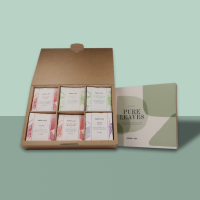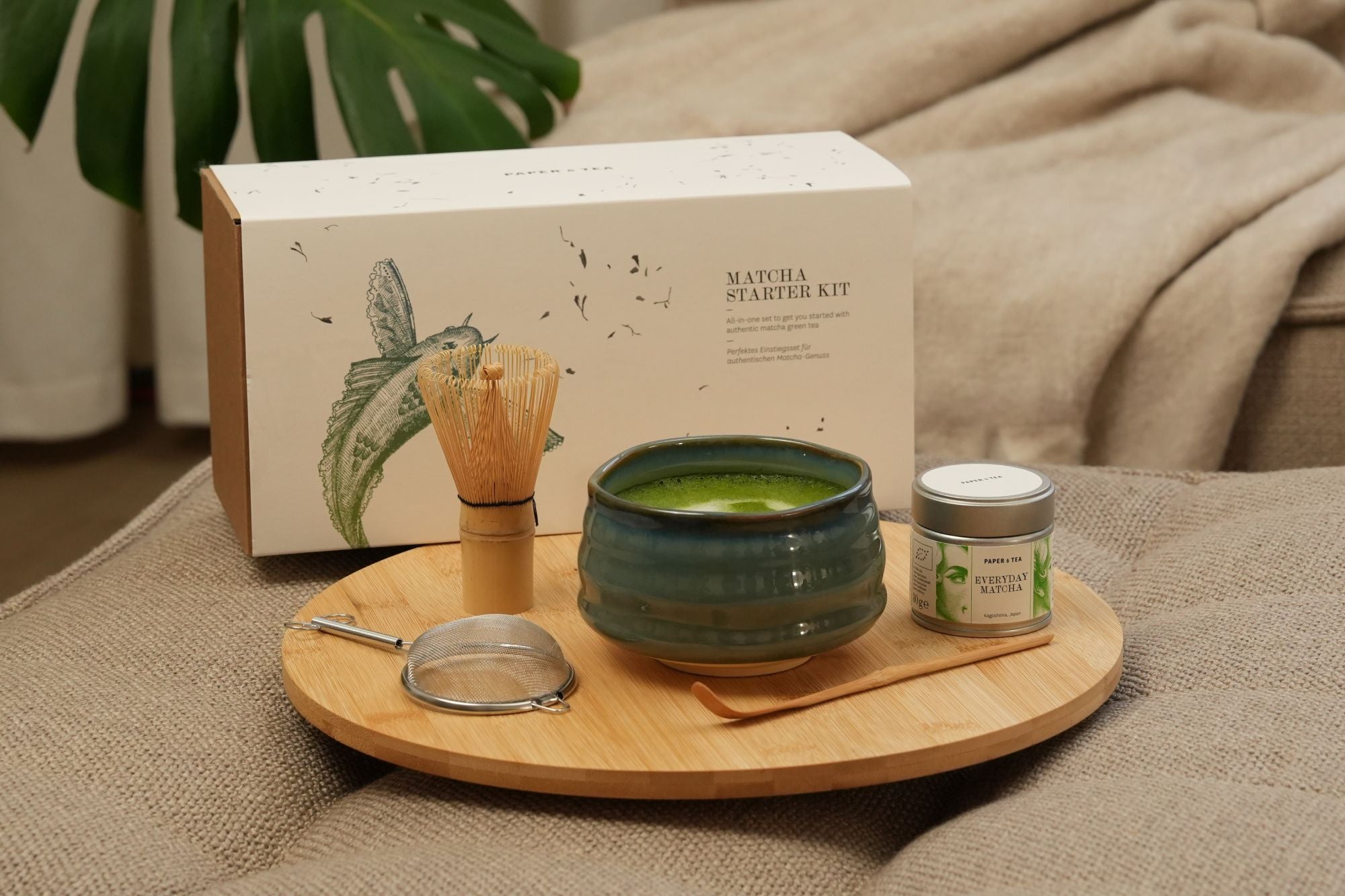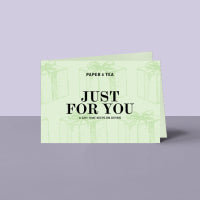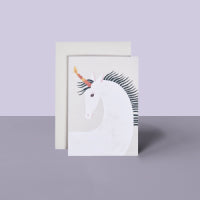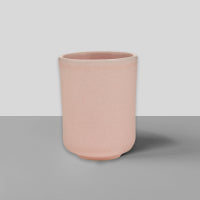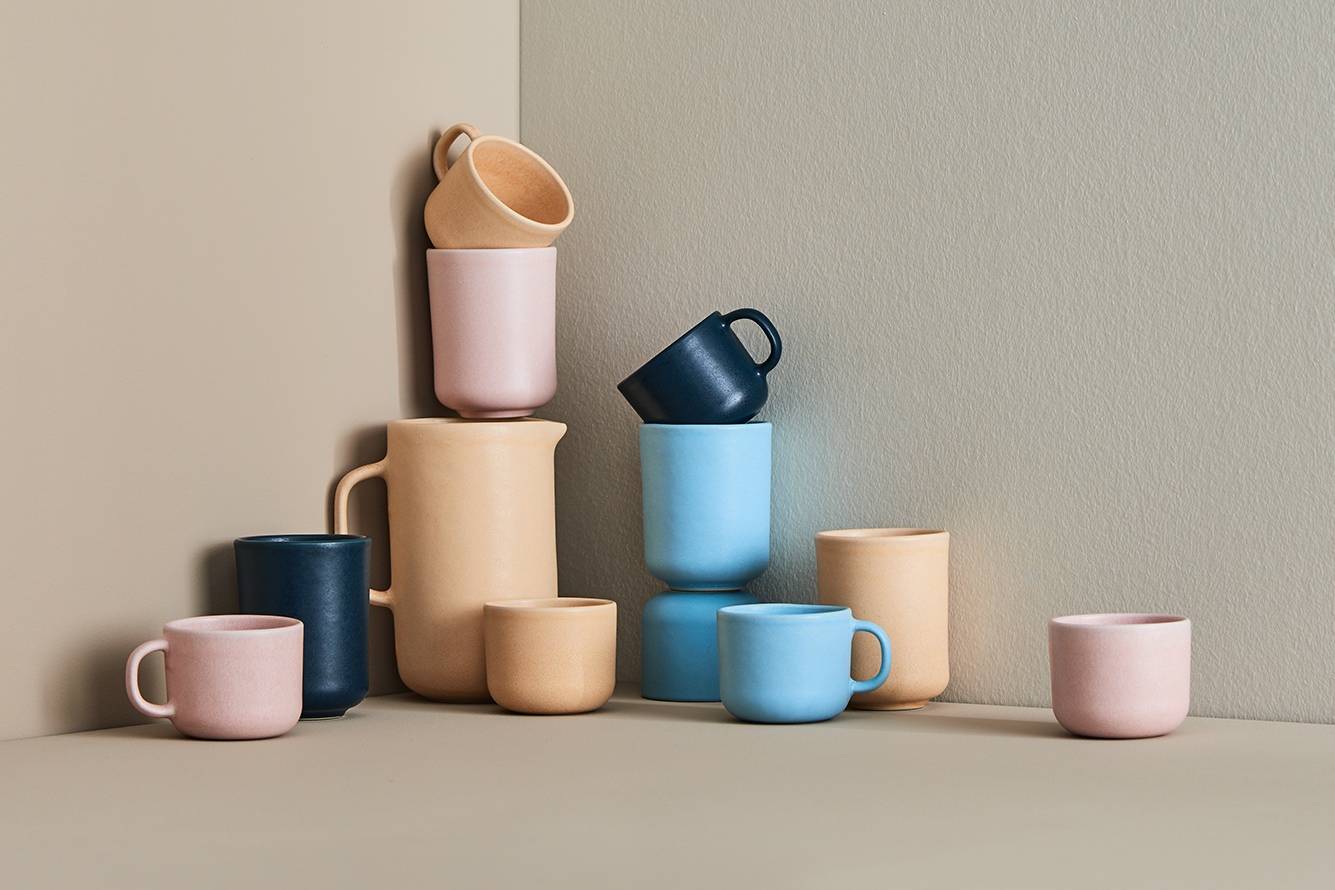Paper is more than just a material - it embodies love, play, and craftsmanship. At PAPER & TEA, we celebrate these aspects in all our products, especially in our Origin Typo paper collection. Not only do we shine a light on our charming typographies, but also on the fascinating printing process behind it: letterpress printing. In collaboration with the talented artisans of "Die Lettertypen" in Berlin, we created real works of art. Using 100% recycled paper from the company "Gmund" and an original Heidelberg printing machine from the 1950s, the letterpress printing process results in unique products. We met with Lettertyp Daniel Klotz for a cup of tea to talk about this traditional process.

The PAPER & TEA Origin Typo paper collection was printed using the authentic letterpress printing method. What makes this printing process exceptional, and how does it work?
Letterpress is a direct printing process. Many people have probably printed or stamped with a potato. The way it works is very similar to letterpress: the letters are raised, and ink is applied and transferred directly onto the paper. That is why the letters and elements of a printing form are also mirror-inverted. Especially using natural papers of a certain volume is particularly beautiful. With enough pressure, the result becomes a haptic experience as the elements imprint themselves into the paper. What was seen as a gross error in the golden age of letterpress is now a sign of quality.
How does letterpress printing differ from other printing processes?
It is the haptic result, the reduction and concentration of the material, and the printing ink which is used. This creates a unique, visible, and tangible experience. So far, no smartphone or tablet has been able to convey this as strongly. And a bit of social romanticism certainly plays a significant role as well.

How does the letterpress printing process contribute to the uniqueness of each manufactured PAPER & TEA paper product, and what special features can be seen in the final collection?
It's simple: hold the products of the collection in your hand. Feel the beautiful Gmund paper, feel the pressure of the typography and elements. You can feel the power, the print that goes into it. The components of paper, color, and print make each of the designs look a bit different. It's just fun to send the PAPER & TEA cards to family or friends, for example, which guarantees positive feedback.
Where does your love for extraordinary and traditional letterpress printing come from?
It runs in my family. I was particularly inspired by my father. He repaired letterpress machines and took me to print shops as a child. That influenced me, and that's how I learned the profession of the typesetter, still in a classical way with lead. Even today, I am still fascinated by the precision of our analog letterpress machines. When I design and typeset a poster with lead or wood type, for example, the limitations of hand typesetting are a challenge, as it is much easier on the computer. But it decelerates, and over a cup of tea, you think about it, change something, perfect it.
Thank you very much for this fascinating interview. If you want to learn more about "Die Lettertypen," visit their website and be inspired by the enchanting world of printmaking. To enjoy the unique haptic experience at home, discover our Origin Typo collection for yourself. From elegant notebooks to impressive art prints – we have something for all minimalists with a flair for the extraordinary.

